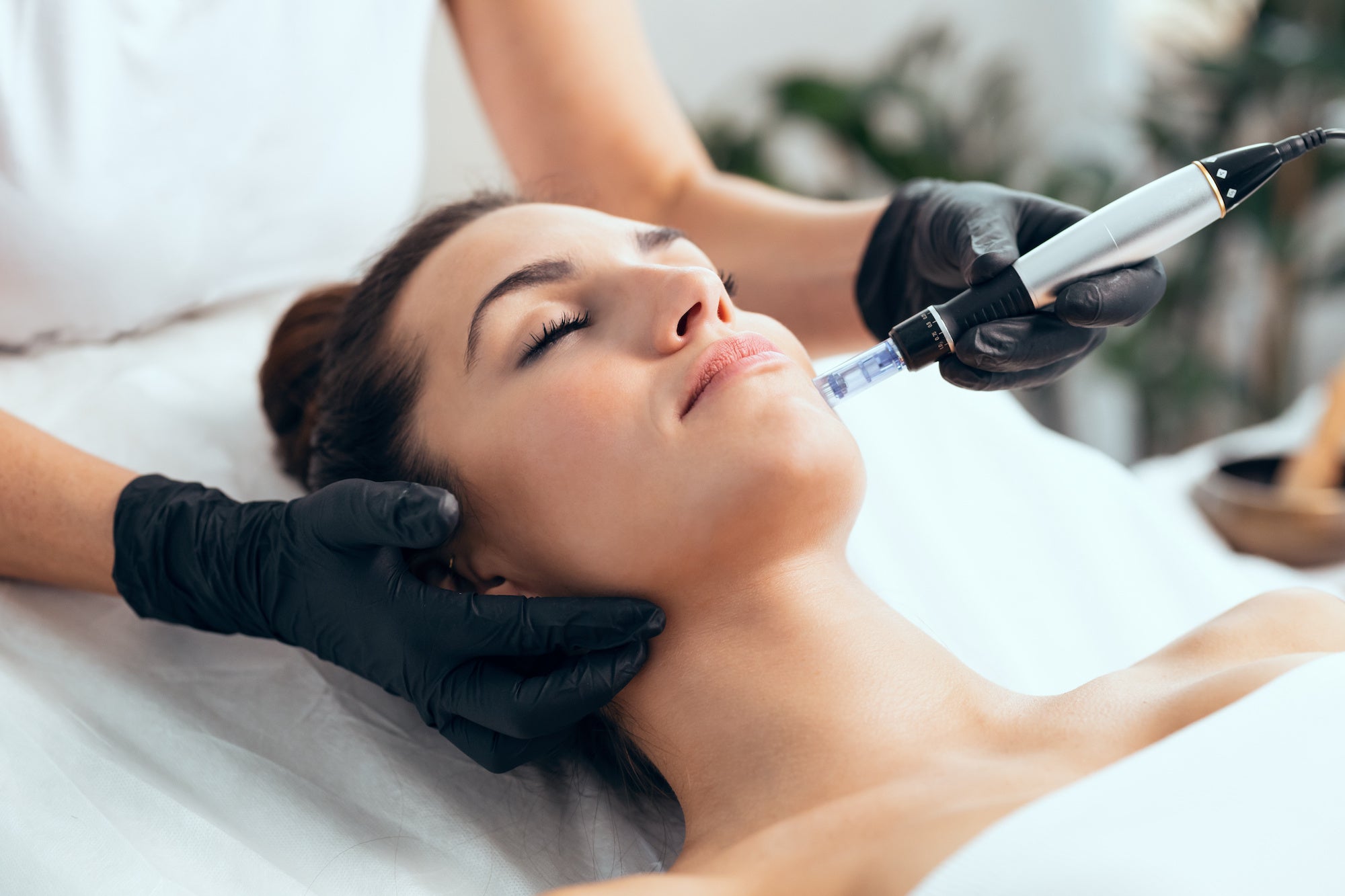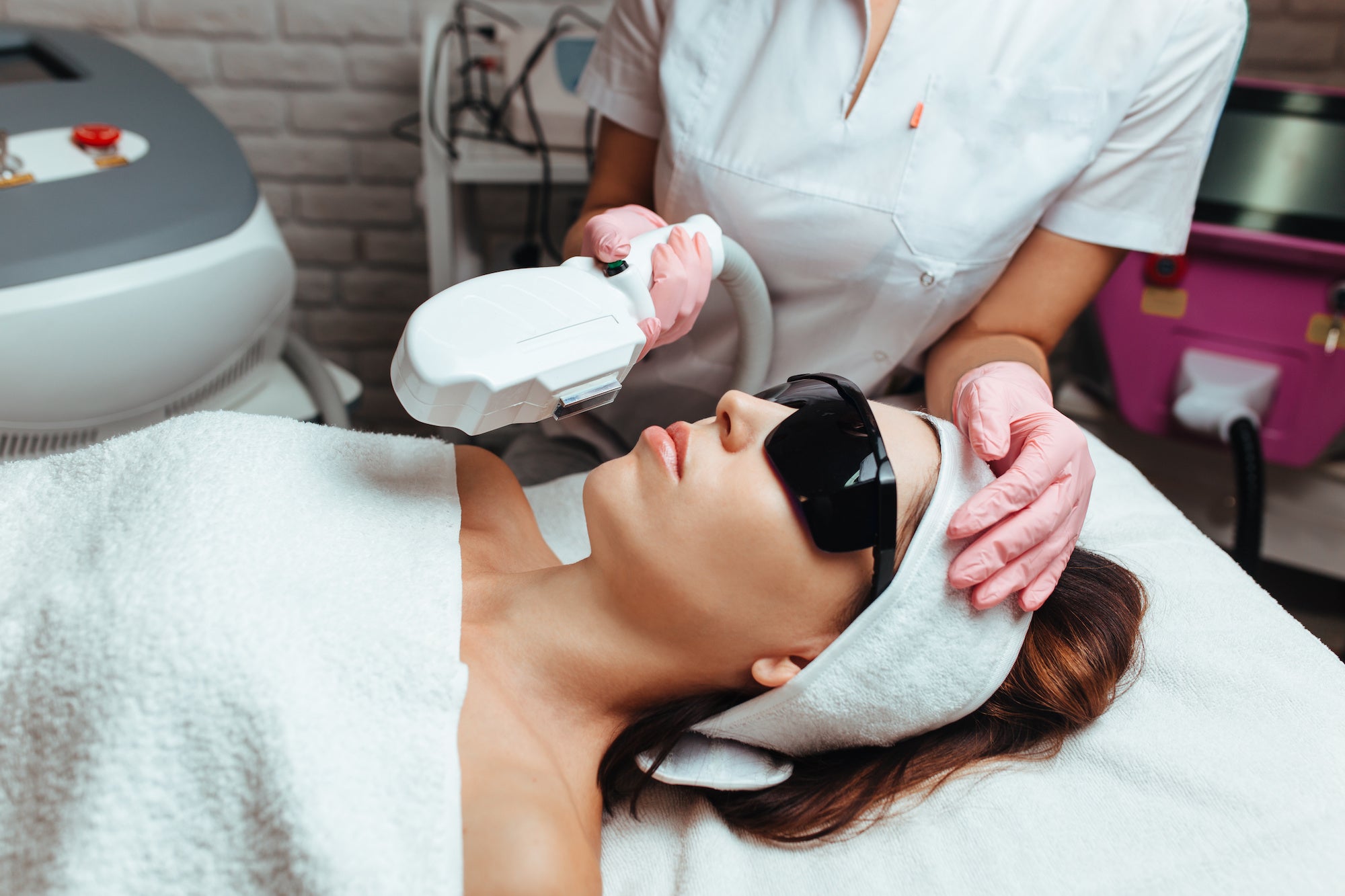
5 Undeniable Signs of Unhealthy Skin
Since 1997, The American Academy of Dermatology (AAD) has designated each November as National Healthy Skin Month®. This month dermatologists emphasize the importance of good skin care and ask all of us to pay attention to the health and vitality of their own skin.
There are many things that contribute to the health of our skin on a daily basis. The habits we have each day make a lasting impact on our skin's microbiome and aging process. Good skin care is paramount, but so is taking care of the rest of our well being by doing things like avoiding smoking and wearing sun protectant when we are outside.
Here are some undeniable signs that your skin is unhealthy. If any of these apply to you, see a board certified dermatologist in your area to get the care you need and medical grade skin care products.
1. You have an uneven texture
Having an uneven skin texture is a sure sign your skin needs attention. Healthy skin has an even, smooth texture and you can't feel any bumps or rough patches.
Many things can contribute to an uneven texture including having dry skin from weather changes or a disrupted moisture barrier. If your skin is dry, you may be experiencing itchy or flaky skin. Without proper moisturizing your dry skin can form rough patches and may become inflamed. Rough skin can also be the result of a build up of dead skin cells over time. Exfoliating mixed with a medical grade moisturizer like Oxygenetix Hydro-Matrix will do wonders for your dry skin.
If you have rough, scaly patches on your skin it is possible you have actinic keratosis which develops from years of sun exposure. Consult with a dermatologist to find out the reason for your uneven skin texture.
2. You have acne
Acne is not solely a puberty issue. Increasingly more adults suffer from adult onset acne. This can be ignited from a variety of things from the medication you take, foods you eat, stress, and hormonal fluctuations.
You can also get breakouts from the skin care products you use and the makeup you wear daily. This is why it is important to pay attention to the ingredients in the products you use, and especially if you have sensitive skin always use products recommended to you by a board certified dermatologist. Use Oxygenetix Foundations which bridge the gap between skin care and makeup to ensure your skin is protected all day.
Acne is treatable and many people have found success with the right daily habits and products. It may take some time to find the best routine for you, but we promise it is possible! Check out our Acne Control Hydro-Matrix and Foundation with Salicylic Acid to help combat acne causing bacteria and keep your skin protected.
3. You have dark spots
If you have dark spots on your skin that are not freckles, it is a sign of skin damage.
Hyperpigmentation literally means "over pigmented". Caused by sun damage, hyperpigmentation is dark splotching on the skin.
Hyperpigmentation may appear suddenly after years of sun exposure. Dark brown patches show up on the face and hands primarily as these areas are exposed to the sun more often.
Melasma, a form of hyperpigmentation, is commonly caused by a hormone imbalance and affects mostly women. Melasma affects approximately 5 million people in the United States, and 40% of people in certain populations. Melasma appears as darkened patches of skin on sun-exposed areas such as the upper lip, chin, forehead, or cheeks. Learn more about melasma on our blog: Melasma is Stubborn, Here's How Your Dermatologist Can Help.
Read our blog Concealing Hypo & Hyperpigmentation with Foundation to learn more and find out how you can conceal dark spots while you heal with Oxygenetix Foundation.
4. You have a rash or hives
If your skin is itchy, red, scaly, raw, or you have raised itchy bumps in one area of your skin, you may have an allergic reaction.
Allergic reactions such as contact dermatitis may appear hours to days after contact with an allergen. You may experience blisters that weep, ooze, or become crusty. It may become itchy and sore.
Skin care products and makeup can cause allergic reactions in some people. You may have also been exposed to a household cleaning product or fragrance that irritated your skin. If you are allergic to something you have eaten you may experience hives.
Most cases of contact dermatitis go away on their own once you are not in contact with the allergen, but you should seek medical attention if the rash is close to your eyes or mouth or doesn't go away with home treatment.
5. You have unusual skin growths
If you have an unusual skin growth that doesn't go away, this may indicate non-melanoma skin cancer. It may appear as a rash at first, and as it grows, it may ooze or bleed easily. The size and shape may change as it goes deeper into the skin.
Some moles are nothing to worry about, but it is still important to have annual checkups with a board certified dermatologist if you have new growths.
The Cancer Center explains, "In addition to examining the legs, trunk, arms, face and neck, it is important to look for signs of skin cancer in the areas between the toes, underneath nails, palms of the hands and soles of the feet, genitals and even the eyes."
The takeaway: Regularly check yourself for skin irregularities and schedule routine skin examinations with your medical health professional. This is especially important if you see anything suspicious or you are susceptible to sun damage.
In Conclusion
Pay attention to the signs your skin is giving you. If you feel like something is off check with your dermatologist so you can be on your way to healthy, glowing skin!
**This information is for awareness only and does not replace professional medical advice.


发表评论
此站点受 hCaptcha 保护,并且 hCaptcha 隐私政策和服务条款适用。